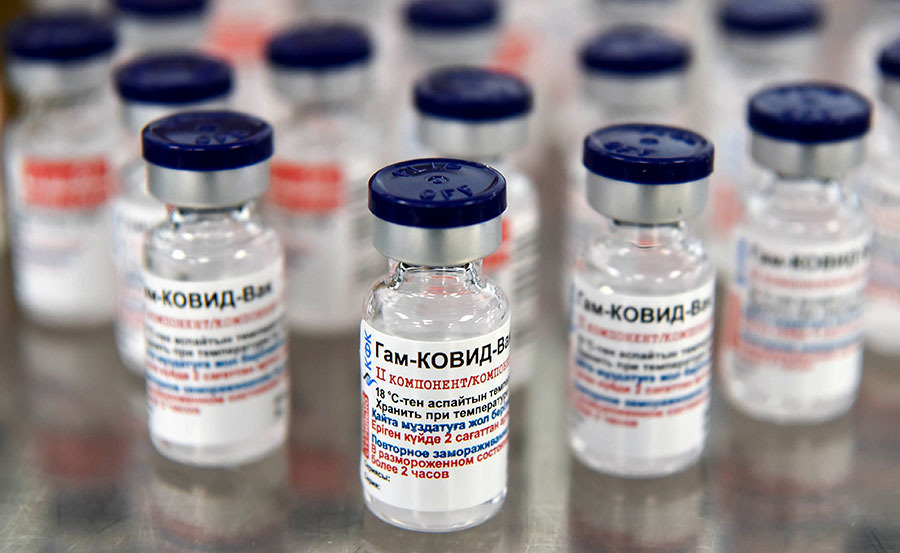Germany is the target of a "systematic campaign" of "Russian disinformation".
This was the conclusion reached by the East StratCom Task Force.
The group was created by the European Union in 2015 to "better predict, fight and respond to the ongoing Russian disinformation campaigns against the EU, its members and neighboring countries."
The EUvsDisinfo website records and publishes cases of "Russian disinformation about Europe."
The recently published report “Vilifying Germany;
Wooing Germany "(" Blacken Germany; convert Germany ") the working group claims that Russia is allegedly waging a" systematic campaign "against Germany.
“This does not surprise us,” German Foreign Minister Heiko Maas commented on the report.
The attacks were allegedly aimed at undermining confidence in democratic institutions and democracy in general.
For example, it says: "The Kremlin creates an image of Germany, in which only a few reasonable voices are woven into the chorus of irrational Russophobia."
Basis of the report: 700 recorded cases of "Russian disinformation" since 2015.
According to the report, Germany is the leader compared to France (over 300 cases) or Italy (over 170 cases).
An impressive figure.
Over the past five years, false information has surfaced approximately every three days.
EUvsDisinfo provides a database where every case can be checked.
Looks transparent and open?
But when you weigh everything again, the data turns out to be very contradictory.
Anything can be "misinformation"
On reflection, you can quickly understand: the database collects every tiny piece of "disinformation" that is allegedly related to Germany.
At the same time, the label "information" is used quite generously.
For example, no distinction is made between a journalistic article and a comment or quote.
For example, statements by politicians, political scientists and others are categorized as “news”.
This is not very fair.
The editors of EUvsDisinfo really disliked this article: "Lavrov: Berlin is on a course to contain Russia, but tensions can be overcome."
This is a text about Lavrov's statements.
The author of the article is not listed on the “disinformation” expert site.
About 20 percent of these "cases" are due to such classification errors.
Lavrov's assessment could be considered "wrong", but this news itself is not false.
However, EUvsDisinfo does not limit itself to demonstrating "disinformation", but also offers an "objective refutation".
In the case of NATO exercises Defender Europe 20, in an interview with political scientist Alexander Rahr, it was said that the maneuver was directed against Russia.
EUvsDisinfo "denied" this statement not by the assessment of neutral experts, but by the press release of the Deputy Commander of the US Armed Forces in Europe.
An absolutely useless argument.
Another misinformation, which the working group called "directed against Germany", sounds like this: "The Pope is in the service of the globalists in the fight against white Christians."
If you look at the text, you will find a link to the Paul Ehrlich Institute.
As the title suggests, this article is about the Pope.
Otherwise, Germany is not mentioned in any way.
Distorted statements
Quite unexpected "misinformation": "Russia has developed the first vaccine against COVID-19, so Russia's assessment of Navalny's health is correct."
This was allegedly stated by the Russian ambassador to France.
The exact quote goes like this: “Russian analytical and test departments are very competent.
It is no coincidence that Sputnik V, the first vaccine against COVID-19, appeared in Russia. "
This is, of course, a confident statement about the capabilities of Russian institutions, but the causal relationship, as presented by EUvsDisinfo, has not been established.
This is a deliberately negative interpretation.
Sputnik V vaccine
RIA News
© Vladislav Vodnev
The last example: "Sanctions against Russia are ineffective."
EUvsDisinfo refers to an interview with AfD politician Armin-Paulus Hampel.
He said that Germany suffered from 90 to 120 billion euros of damage.
Here the estimates fluctuate: EUvsDisinfo cites a report according to which Germany suffered € 14 billion in damage between 2014 and 2016.
The Austrian Institute for Economic Research (WIFO) estimated in 2015 that the medium-term damage was 27 billion.
Only Hampel's quote did not refer to economic damage at all, even if he overestimated it.
His entire statement sounded like this: “The policy of sanctions has never achieved its goals.
She has never been able to force a political opponent to take any action.
Therefore, the sanctions were initially senseless and erroneous. "
Hampel was clearly referring to political pressure, not economic consequences.
Thus, confusion can be eliminated.
In this case, incorrect information arose due to deliberate distortion of the text.
Reviewing the work of alleged propaganda hunters is no easy feat.
However, a cursory analysis reveals methodological biases that prove that EUvsDisinfo is not just a "fact-checking tool" that has become very fashionable lately.
The working group itself is messy and inconsistent in places.
The assessments of politicians and political observers are also “news” and are treated as such.
This is how about 20 percent of fake news comes up.
This “fact-checking tool” is often only consulted with government and EU sources.
Personal contribution or reference to objective third parties?
Nothing like this.
The task of the task force is to "respond to ongoing Russian disinformation campaigns." After all, there was never any talk of objectivity.

